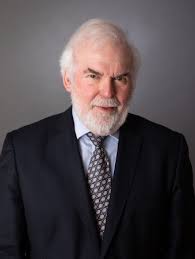On the last day of the 11th World Potato Congress (WPC) in Dublin, Ireland, WPC President Romain Cools, called in the WPC Declaration of Dublin upon the global potato value chain to invest in ‘potato solutions’ to advance the UN Sustainable Development Agenda 2030. In this Agenda, the UN has included 17 Sustainable Development Goals (SDG’s), which are a universal call to action to end poverty, protect the planet and improve the lives and prospects of everyone, everywhere.
Romain Cools pointed out the figures illustrating the world population growth of 9.7 billion by 2050, and a need for 70 % more food, produced in a more sustainable way. The climate change is an extra challenge to increase productivity to reduce rural poverty. To obtain these objectives worldwide, millions of smallholder families are needed to assure food security, climb out of poverty and engage in an active value chain, leading to jobs and wealth creation.
In his opening address, the WPC President concluded that local food production in general and potatoes more specifically must be intensified to assure food security and reduce dependency from international trade. In a lot of areas in the world, the potato crop could be part of the solution, as has been illustrated during the Covid-pandemic and the impact of the conflict in Ukraine.
Four Pillars
In its Declaration of Dublin, the World Potato Congress, the Canadian NGO, includes four pillars to carry this project.
Pillar 1: Enhance the profile and benefits of the potato. There is a lot of power in potato-based systems:
- It has been proven by science that potatoes can feed people in a healthy way.
- Taking into consideration the population growth in Africa, South America and Asia, the potential of the potato for these areas needs to be looked at and to be reflected in national agriculture policy and planning on global, regional and local level.
Pillar 2: New partnerships must be forged.
Two factors to meet challenges and utilize emerging opportunities can be addressed:
- Research partnerships need to be intensified and adopted to support methods to overcome production challenges and climate effects for rural communities.
- Partnerships throughout the potato value chain need to be developed in order to increase access to clean seed, productivity and value chain development by the private sector.
To set up these partnerships the following requirements lay on the table:
- Economic levers for rural communities in developing countries,
- Investment capital into professional potato projects,
- Raising awareness of entrepreneurship in the farming sector,
- Collaboration to create new value chains.
Pillar 3: Best practices must be championed.
During the 2018 World Potato Congress in Cusco, Peru, WPC presented its toolbox to guideline new local potato projects in countries on the road to development. Several examples of potato projects in all corners of the world have illustrated that these six stages are a good guideline.
This WPC toolbox tries to share best practice information on several aspects:
- Offering farm management and sustainable crop production technologies in collaboration with R&D entities,
- Reducing food losses along the potato value chain and creating better storage capacity,
- Extending marketing assistance (including quality, promotion, market access, added value, processing, innovation, more efficient production and packaging).
Pillar 4: The role of the World Potato Congress.
In this – faster than ever – changing world, WPC Inc. has a catalyst role, bringing stakeholders in the potato value chain together, by launching new initiatives using its global network of organizations, companies and sustaining partners.
Some examples of these initiatives:
- A regular scheme of ‘international webinars’, focusing on R&D, economy, consumption, trade, crop management and storage,
- ‘Regional collaboration’ with authorities and organizations, including awarding regional initiatives. The biennial World Potato Congress also allows more regions to welcome the global potato community, sharing knowledge and experiences and setting up new initiatives,
- ‘Sustaining partnership’ brings ideas of private companies, organizations and media together to inspire the WPC board and international advisory committee and its initiatives.
WPC Potato Ambassadors to spread the message.
In order to get these messages linked to these four pillars and out worldwide, the World Potato Congress has started up a new network of WPC potato Ambassadors.
The first two Ambassadors have been presented at the launching of the Declaration of Dublin. They concern “potato lovers” on different social-economic levels.
Tom Arnold, who grew up on a potato farm near Dublin, and is currently serving as the Irish Government’s Special Envoy for Food Systems’ and currently serving as Chair of the EU Commission’s High Level Expert Group to assess the Need for an International Platform for Food Systems Science (IPFSS); the Irish Government’s Special Envoy for Food Systems; Member of the Champions Network for the UN Food Systems Summit (FSS); Member, Global Panel on Agriculture and Food Systems for Nutrition (GloPan); Member, Board of Global Alliance for Improved Nutrition (GAIN); Member, Malabo Montpellier Panel; Member, Sight and Life Foundation.
He has previously served as Chair of the Irish 2030 Agri-Food Strategy Committee; of the EU Commission’s Task Force Rural Africa; as Coordinator of the Scaling Up Nutrition (SUN) Movement; as Director General of the Institute of International and European Affairs (IIEA); as Chair of the Irish Constitutional Convention; as Chief Executive of Concern Worldwide; as Chair of the OECD Committee of Agriculture, as Chief Economist and Assistant Secretary General of the Department of Agriculture, Food and the Marine; and Administrator of the EU Commission. His primary degree is in agricultural economics from University College Dublin (UCD) and he has Master’s degrees from the Catholic University of Leuven and Trinity College, Dublin.
Toms Skujiņš is a Latvian professional road racing cyclist, who currently rides for UCI WorldTeam Trek-Segafredo. In 2013 and 2015, he received the Cyclist of the Year award presented by Latvian Cycling Federation.

In 2014, Toms Skujiņš dominated the Canadian race, Tour de Beauce. In 2015, he won the third stage of the Tour of California and he would go on to win the 2015 UCI America Tour. He was named in the start list for the 2017 Vuelta de España. In July 2018, he was named in the start list for the Tour de France. He took the polka dot jersey as the leader of the mountain’s classification following the fifth stage, which he held for five days. He won the combativity award on the fifth stage in both 2018 and 2019. Skujiņš finished second on the eighth stage of the 2020 Tour de France. For the 2022, Tour he is in the pre-selection of his team. He is currently national champion in Latvia, as well in road race as time trial, and achieved several top 10 results in regional tours and one day classics.
Toms Skujiņš has a nickname in the peloton: he is called ‘the potato man’, as he is expressing his love for the potato (a part of Latvia cuisine culture), where most of his colleagues rely on pasta as their carbohydrate source. Whenever and wherever he can, Toms expresses his love for potatoes and potato dishes.
More information : Romain Cools, rcools@telenet.be and twitter : @romaincools








